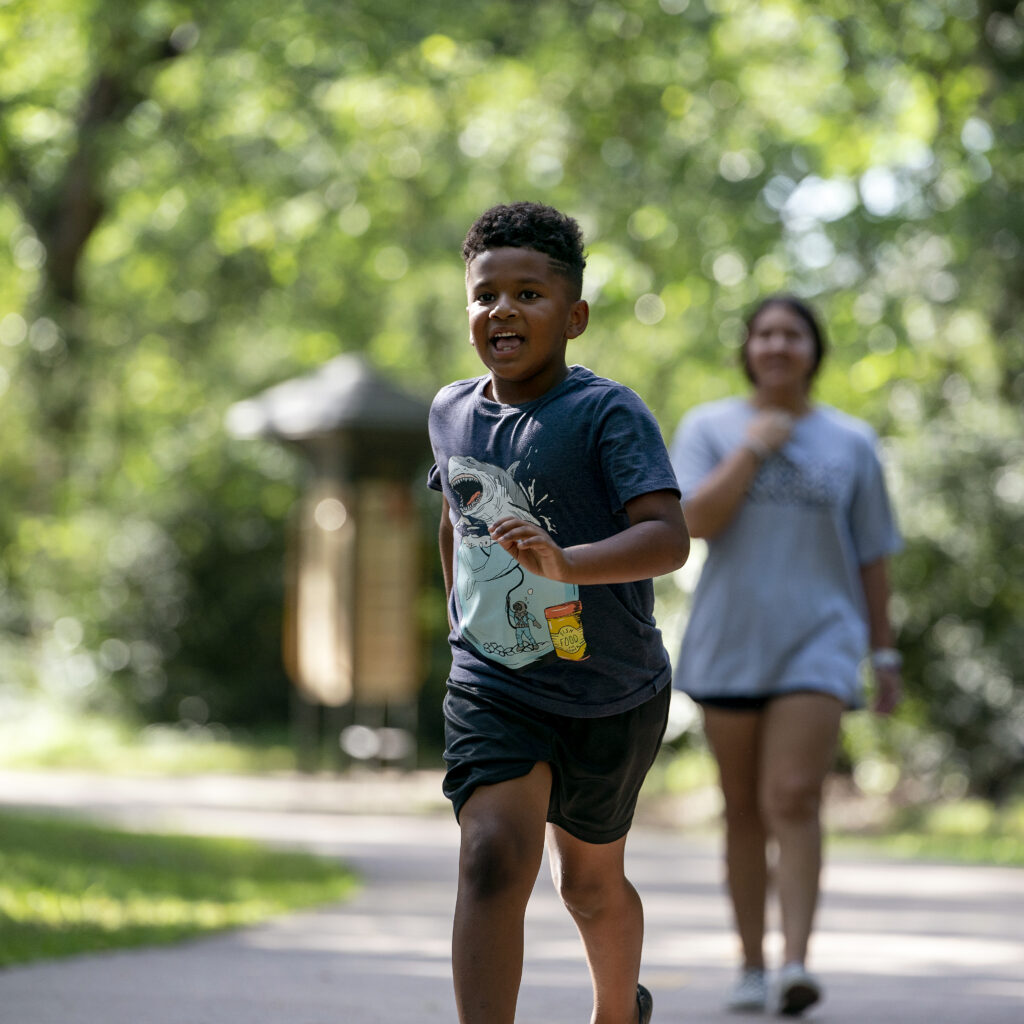Life & Health
The Texas A&M AgriLife Extension Service has a variety of materials, programs and resources for promoting the lives and health of Texans. These include an array of nutrition, health and wellness materials and programs for both youth and adult audiences, including many community-driven programs.
Related Departments: Food Science & Technology, Nutrition

Better Living for Texans

Learn About
Life & Health
Publications
Programs
Courses
All Resources on Life & Health
- Course
Despite the known benefits of outdoor and nature play for young children, early childhood educators and administrators may worry about issues of safety and liability.
The purpose of this 2-hour course is to equip early childhood professionals to view risk in outdoor and nature play as a process of balancing risks and benefits, rather than a barrier to including outdoor and nature play in your program. - Course
Early childhood educators can make the most of planned outdoor and nature play experiences in terms of children’s learning through the interactions they have with children as they play.
The purpose of this 2-hour course is to offer early childhood professionals actionable strategies for facilitating learning through outdoor and nature play. - Course
In early childhood, a child’s social emotional development and mental health are one and the same. That means the strategies early childhood educators use to cultivate positive social emotional development are, by definition, supportive of positive mental health outcomes.
The purpose of this 2-hour course is to give early childhood professionals a review of key milestones and learning goals in the social emotional domain of development and a selection of practical strategies to help children achieve them. - Course
Math is FUN! It is one of the few times you can see the wheels turning as children engage in the exploration of number and number operations, geometry and spatial sense, classification, and pattern skills! Learning happens right before your eyes!
- Course
Supporting the development of language skills is a crucial undertaking for all early childhood teachers. Language is the foundation for verbal language to occur and can be developed throughout every minute of the day!
In this 4-hour course, the learner will be able to explain strategies to use in the classroom to support children’s language development, describe how to create a language-rich environment and how this supports children’s growth and development, and explain how dual language learners are supported through ECE best practices and why this support is essential. - Course
Many parents work nontraditional hours, meaning their children need access to early care and education programs outside typical operating hours. In the absence of qualified early care and education programs that offer nighttime care, these families may have to make challenging and precarious choices, choosing between maintaining their employment and leaving their children without the appropriate care.
The purpose of this 2-hour course is to support early childhood program owners and directors through the process of incorporating extended hours of care, including overnight care, to support the needs of many families across Texas. - Course
Starting a new home-based child care business involves making a number of decisions about how best to operate the program and meet the needs of children and families. Fortunately, several statewide programs offer training, resources, and guidance to assist you in navigating the process.
This 1-hour course for prospective home-based child care business owners will introduce some key support systems and the tools and services they provide. - Course
Health and safety of children in care is the #1 priority for all early childhood professionals. Home-based child care has specific requirements that must be addressed to ensure health and safety practices are properly integrated into a home-based child care.
This 2-hour course is for prospective home-based child care business owners and will introduce some of the health and safety standards, best practices, and ways to properly implement these in your home-based child care. - Course
Starting a new home-based child care business involves making a number of decisions including the type of home-based child care to operate and how to incorporate best practices.
- Course
Learning environments and intentional teaching are key aspects to any successful early childhood program. Home-based child care has unique settings and specific requirements to ensure the daily activities are conducive to positive learning outcomes for children in your care.